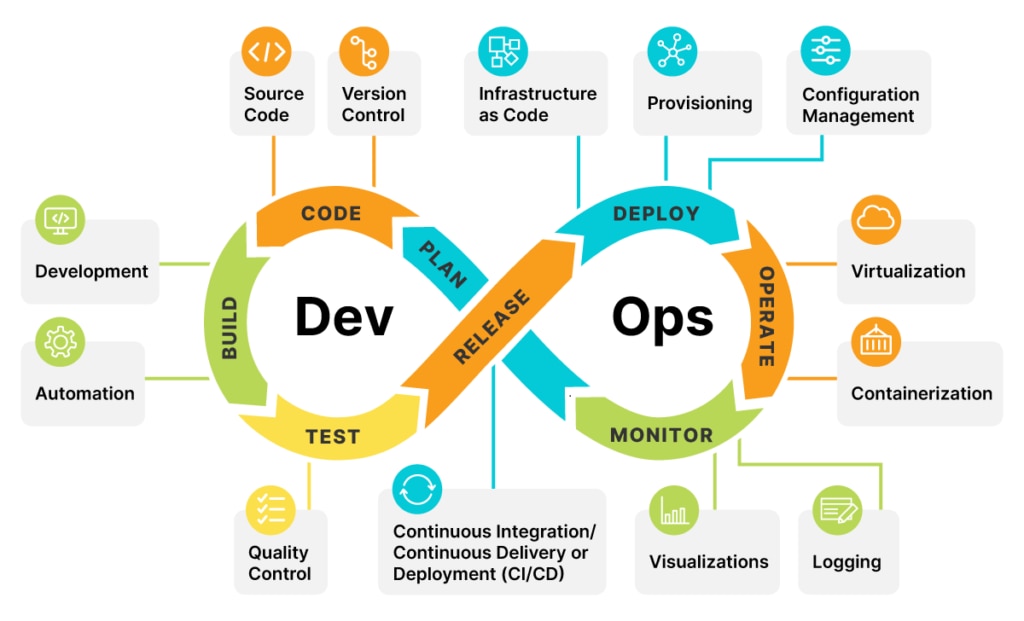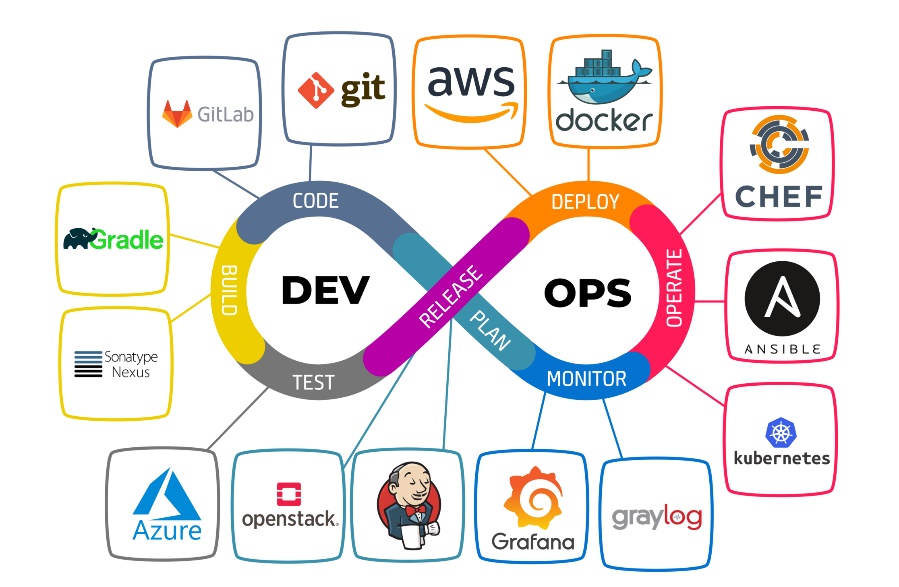Unleashing the Power of DevOps:
Transforming the Way We Build and Deliver Software


In today's fast-paced digital world, the success of any organization largely depends on its ability to adapt, innovate, and deliver high-quality software efficiently. This is where DevOps, a transformative approach to software development and IT operations, plays a pivotal role. DevOps isn't just a buzzword; it's a game-changer that streamlines processes, encourages collaboration, and accelerates delivery. In this blog, we'll delve into the wonderful world of DevOps and explore how it's revolutionizing the software development landscape.

DevOps is a portmanteau of "Development" and "Operations." It's a cultural and technical movement that emphasizes collaboration between software developers and IT operations teams. The goal is to automate and integrate the processes of building, testing, deploying, and monitoring software applications, thus ensuring faster and more reliable releases.
1. Collaboration: DevOps promotes collaboration between development
and operations teams, breaking down traditional silos and fostering
shared responsibility.
2. Automation: Automation is at the heart of DevOps.
It allows for the efficient and consistent execution of
repetitive tasks, reducing human error and speeding up
the development pipeline.
3. Continuous Integration and Continuous Delivery (CI/CD):
CI/CD pipelines automate the build, testing, and deployment processes,
ensuring that code changes can be quickly and safely delivered to production.
4. Monitoring and Feedback: DevOps teams monitor applications and
infrastructure in real-time, collecting feedback that helps identify issues
and areas for improvement.
5. Infrastructure as Code (IaC): IaC enables the provisioning
and management of infrastructure through code, ensuring consistency
and scalability.
6. Security: DevSecOps integrates security practices into the DevOps pipeline, addressing vulnerabilities early in the development cycle.
1. Faster Delivery
DevOps shortens development cycles and accelerates the release of new
features and updates. This agility is critical in meeting customer demands
and responding to market changes.
2. Improved Quality
Automated testing and continuous integration catch bugs early, reducing the
likelihood of defects in production. This leads to more stable and reliable software.
3. Enhanced Collaboration
DevOps encourages cross-functional teams to work together, fostering a
culture of trust and shared goals.
4. Reduced Downtime
With automated deployments and robust monitoring, downtime is
minimized, and issues are quickly resolved, ensuring a better
user experience.
5. Cost-Efficiency
Efficient resource allocation, automation, and improved productivity result in cost savings for organizations.

1. Version Control with Git
• Explain Git fundamentals, branching, and merging.
• Hands-On: Create a GitHub repository, push code, and manage branches.
2. Continuous Integration and Continuous Delivery: with Jenkins
• Discuss Jenkins as a CI/CD tool.
• Hands-On: Set up a Jenkins server, configure a
Jenkins pipeline, and automate builds and deployments.
3. Containerization with Docker
• Explain Docker containers and their benefits.
• Hands-On: Create a Docker image for your application and run it locally.
4. Infrastructure as Code (IaC)
• Discuss IaC concepts.
• Hands-On: Write an IaC script to provision a simple infrastructure on a cloud platform.
5. Monitoring with Prometheus and Grafana
• Introduce Prometheus and Grafana for monitoring.
• Hands-On: Install and configure Prometheus and Grafana to monitor your application.
6. Security Scanning with OWASP ZAP
• Discuss security scanning in the DevOps pipeline.
• Hands-On: Integrate OWASP ZAP into your pipeline to scan for web application vulnerabilities.
While DevOps offers a myriad of benefits, it's not without its challenges. It requires a cultural shift, new skill sets, and a commitment to continuous improvement. Organizations should carefully plan and implement DevOps practices to reap the rewards fully.
DevOps is more than just a set of practices or tools; it's a mindset that values collaboration, automation, and continuous improvement. In a world where software is at the core of business success, DevOps is the key to staying competitive. Embrace the DevOps culture, and you'll find yourself at the forefront of innovation, delivering high-quality software faster than ever before. The wonderful world of DevOps is reshaping the future of software development, and you don't want to be left behind.